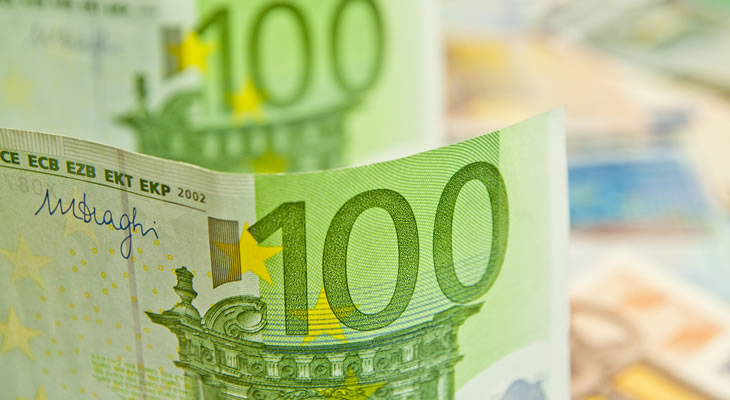Unimpressive Eurozone Inflation Data Boosts Pound Euro (GBP/EUR) Exchange Rate
Ahead of December’s finalised Eurozone consumer price index data the Pound to Euro (GBP/EUR) exchange rate continued to gain ground, benefitting from the bearishness of the single currency.
Investors were not encouraged by the latest comments from European Central Bank (ECB) vice president Vitor Constancio, who noted that monetary policy will remain ‘very accommodating’ for a long time.
This put a dampener on hopes that the central bank might begin to wind down its quantitative easing program sooner rather than later, leaving the Euro (EUR) to trend lower against rivals such as the US Dollar (USD) and Australian Dollar (AUD).
Once core inflation was confirmed to have continued to languish at 0.9% at the end of 2017 the GBP/EUR extended its gains, with the odds of any imminent shift in ECB policy outlook appearing slim.
As analysts at Danske Bank commented:
‘Overall, we expect core inflation to average only 1.1% in 2018, in line with the ECB’s new forecasts.’
Weaker UK Retail Sales May Increase Pound (GBP) Downside Pressure
In the wake of Tuesday’s dip in UK inflation the GBP/EUR exchange rate may struggle to find significant upside momentum.
With inflation showing signs of moving back towards the Bank of England’s (BoE) 2% target, albeit gradually, the chances of any imminent interest rate hike have naturally diminished.
Given the persistent political uncertainty surrounding Brexit and the severity of the ongoing wage squeeze the BoE may opt to take a more cautious approach to monetary policy over the coming months, to the detriment of the Pound (GBP).
If Friday’s retail sales figures suggest that consumer spending is falling, as households rein in their finances, this could put further downside pressure on the GBP/EUR exchange rate.
As high levels of consumer spending have helped to drive continued economic growth in the wake of the Brexit vote a weaker showing here could spook investors, casting doubts over the UK outlook.
Euro (EUR) Exchange Rate Volatility Forecast on Fresh ECB Commentary
The latest German producer price index data is unlikely to provoke particular volatility for the GBP/EUR exchange rate.
Even if the data points towards increased inflationary pressure within the Eurozone’s powerhouse economy this may not be enough to boost the Euro out of its recent slump.
Commentary from ECB policymakers will remain a key focus for EUR exchange rates for some time to come, with markets still speculating over the likely timing of any return to a monetary tightening bias.
On the other hand, political concerns are also expected to keep Euro demand in check.
Any signs that the proposed ‘grand coalition’ between Angela Merkel’s CDU and the SPD will not come to fruition could see the single currency slide lower.
The collapse of another potential coalition government would throw the German political landscape into fresh turmoil, raising concerns over the implications that continued political limbo will have for the wider Eurozone.


Comments are closed.